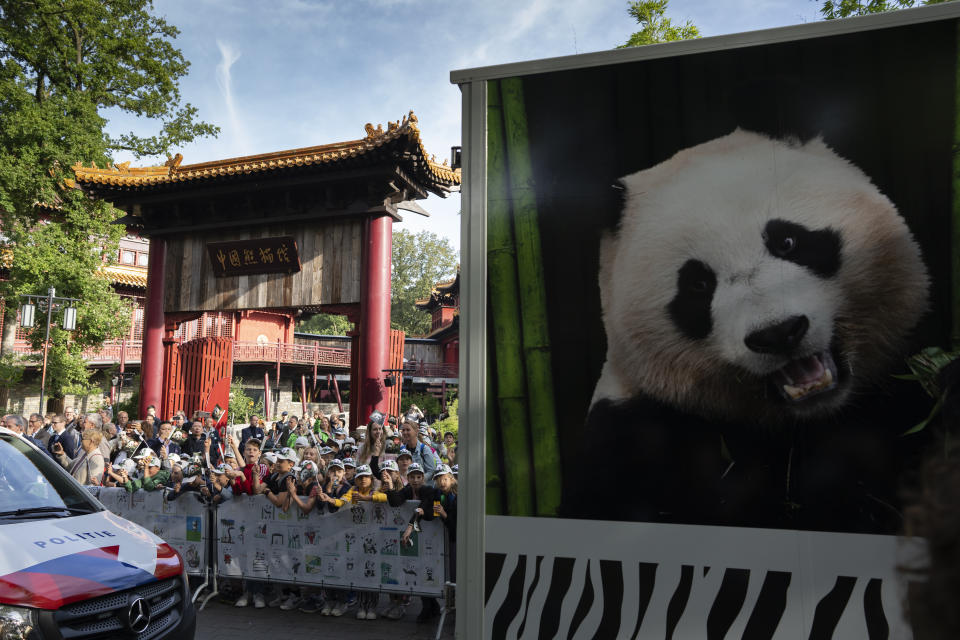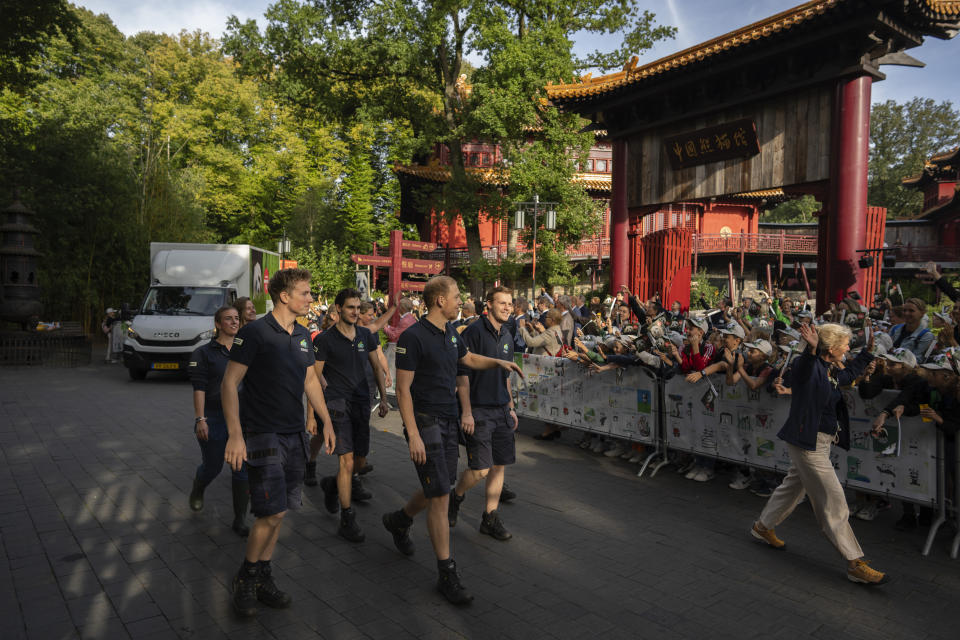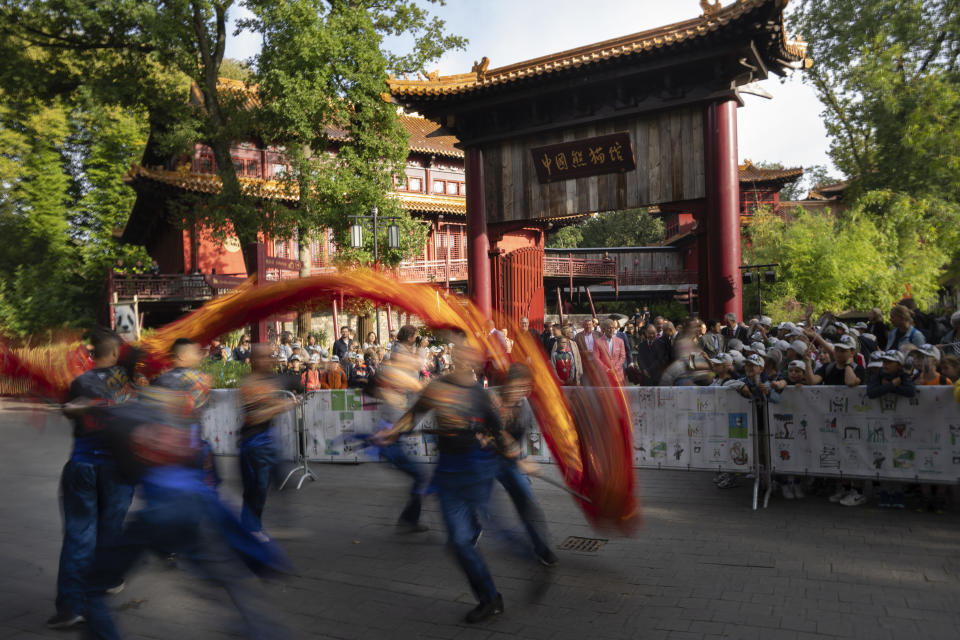Giant panda Fan Xing leaves a Dutch zoo for her home country China
RHENEN, Netherlands (AP) — Giant panda Fan Xing began a long journey home on Wednesday — to a country she has never visited.
The 3-year-old was given a ceremonial send off Wednesday from Ouwehands Zoo in the Netherlands, where she was born, for the first leg of her journey to China, where she will join a breeding program that is helping preserve the vulnerable species.
Wouter Jurgens, director Asia and Oceania at the Dutch Ministry of Foreign Affairs, said he hoped the panda would be an ambassador for relations between the Netherlands and China.
Those links have been strained in recent months by the Dutch decision to limit sales of advanced semiconductor processor chips. The government called the move “country neutral,” but it was seen as part of a U.S. policy aiming at restricting China’s access to materials used to make such chips, which can be used in military technology.
Jurgens said Fan Xing represented “a sign of the special relationship between the Netherlands and China in the field of nature conservation, but of course also much broader.”
“So today I would also like to express the hope that this Dutch-born panda, Fan Xing, will contribute ... not only to the protection of nature, the protection of a species and of biodiversity, but also continue to contribute to the relationship between the Netherlands and China.”
Fan Xing was born on May 1, 2020, the first cub born in the Netherlands as a part what was once known as China's “panda diplomacy” program. At the time, a quick check determined that the cub was male, but a test late last year that was part of meticulous preparations for her trip to China established that Fan Xing is female.
For decades, China gifted friendly nations with its national mascot. The country more recently has loaned pandas to zoos on commercial terms.
Fan Xing's parents, Xing Ya and Wu Wen, were sent to the Netherlands from Sichuan province in 2017. Under terms of the deal that brought them to this small town in the central Netherlands, any cubs they produce must be sent to China before they reach the age of 4.



